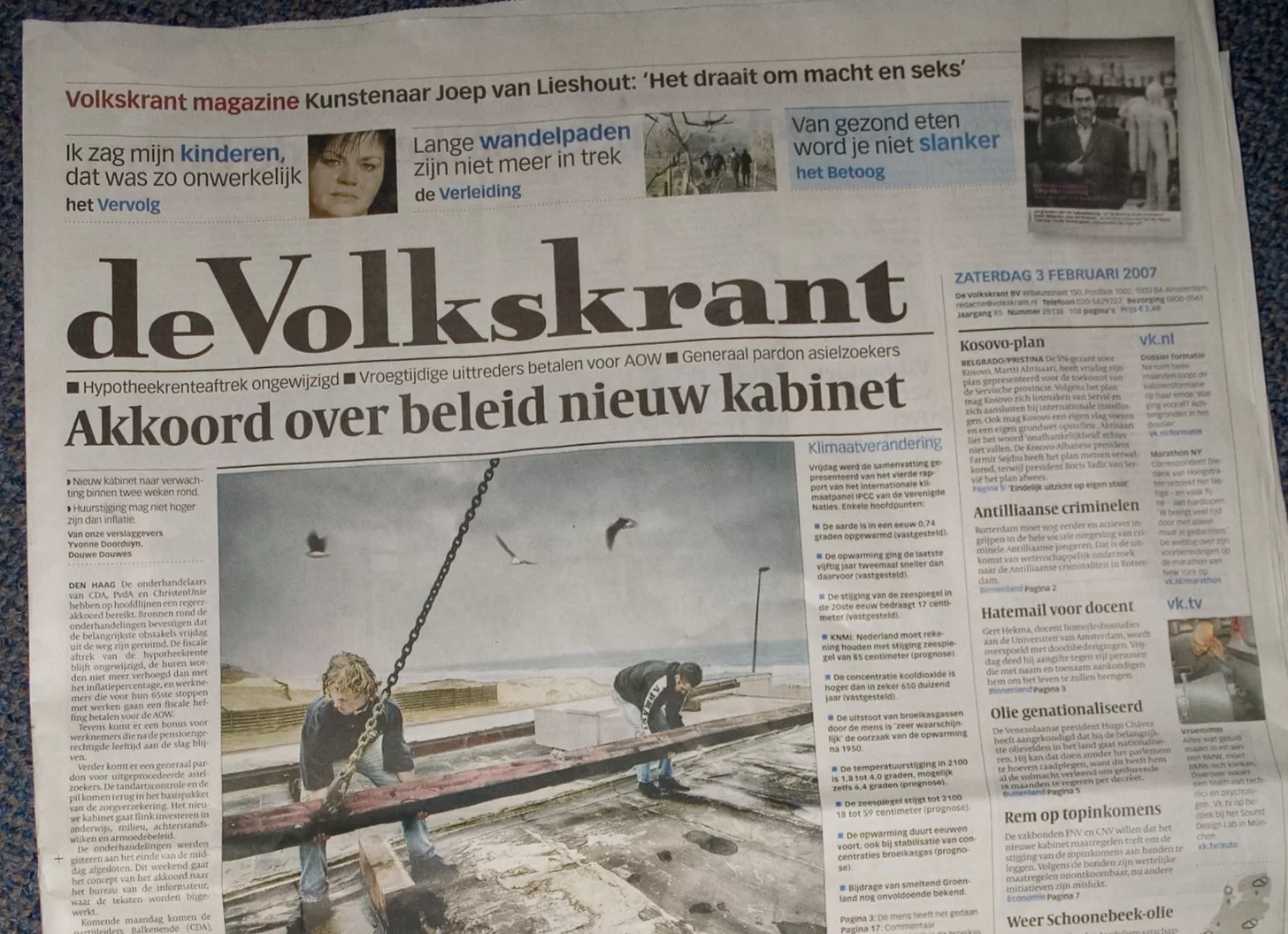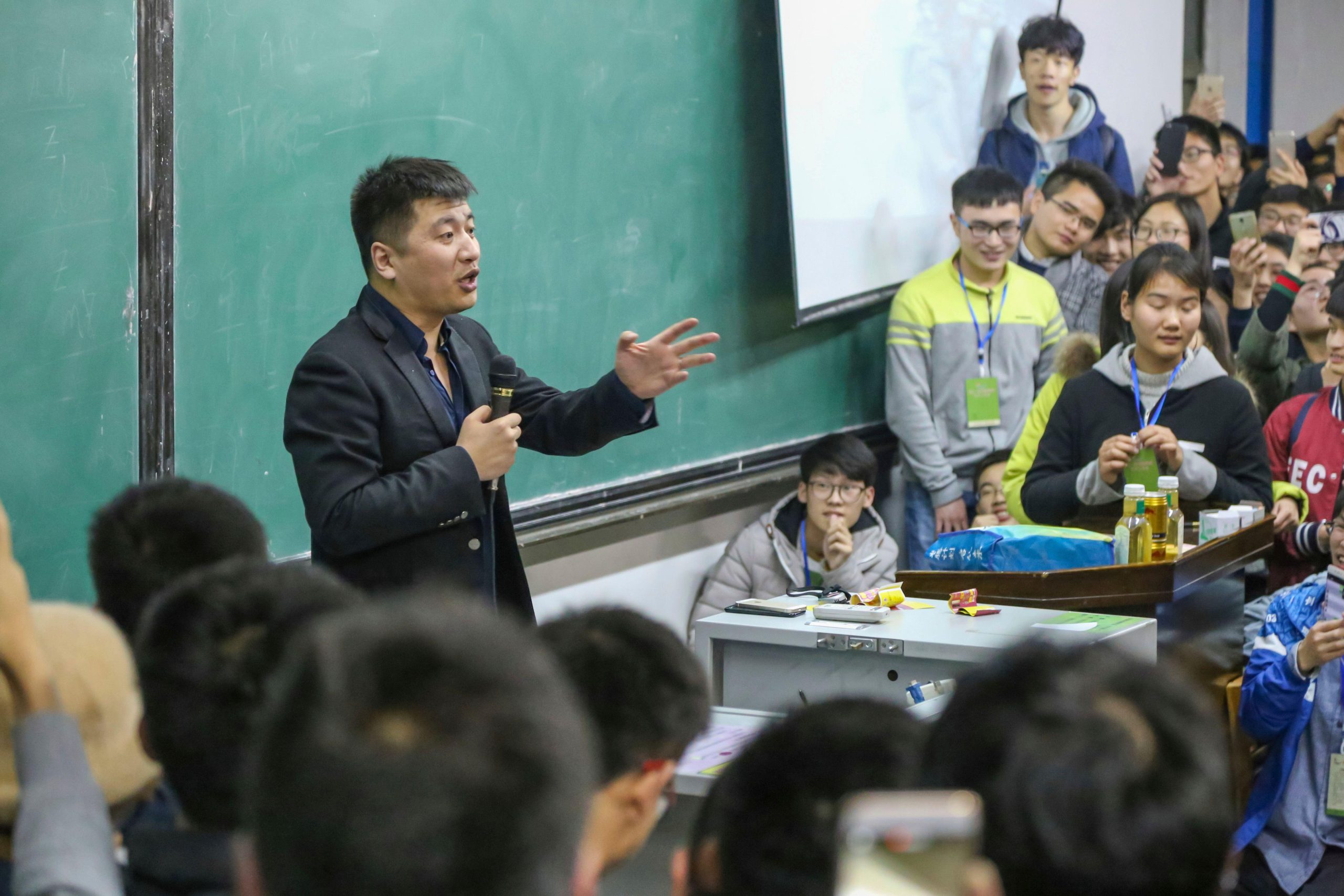One day last October, journalist and former China correspondent with the Dutch daily newspaper de Volkskrant Marije Vlaskamp received an odd email. It contained confirmation of a hotel reservation at the Holiday Inn Express in The Hague made on Booking.com in her name.
Two things struck her as extremely strange. One is that the reservation had been made on the Chinese language version of the website; the second is that she had never made the booking.
After calling the hotel to cancel the reservation, things became even more unsettling.
She received a message from the Chinese dissident Wang Jingyu, whom she had interviewed before. Wang had recently found refuge in the Netherlands and she had been in touch with him for a story about the ‘long arm of China’. He told Vlaskamp that a room had been booked in his name in the same hotel. Wang had also received an anonymous threat in Chinese: “‘One tip-off from me and the police will come and arrest you and your journalist friend.”
This was the moment Vlaskamp thought it was about time to inform her superiors at the paper – but not before she made herself a pot of jasmine tea. After having worked in China as a correspondent between 2001 and 2019, she knew the intimidation tactics of the Chinese state very well. She just never expected to be confronted with them after her return to the Netherlands.
Vlaskamp told the story in a long-form article in de Volkskrant in early April.
In it she revealed that the hotel reservation was just the first step in a campaign of intimidation targeted at both her and Wang.
Vlaskamp says as part of the campaign that she had received an anonymous warning that her name would be linked with bomb threats. A day later, she saw on the news that the residence of Dutch prime-minister Mark Rutte had been cordoned off and police, fire brigades and the bomb disposal unit were on the scene. Her heart “skipped a beat” when she heard that the threat was a car with a foreign number plate parked in the street where the Chinese embassy is located, just 200 meters away from the PM’s residence. That’s when she knew that the messages were part of a serious threat against her.
What is unclear is who is sending these intimidating messages. Putting pieces of the puzzle together, there is no doubt that they were acting on behalf of the Chinese state. In her article, Vlaskamp writes about researchers and scientists who have been warning for some time that China has been working on a network of influencing, subversion and intimidation abroad, while digital traces lead Dutch police investigators to IP-addresses in China and Hong Kong. But the Chinese state couldn’t be caught red-handed.
Vlaskamp is one of the first journalists to be subject to an intimidation campaign by China outside Chinese borders. In the summer 2023 issue of Index on Censorship magazine, we wrote about the case of Australian journalist Vicky Xiuzhong Xu. She and her family were harassed after contributing to a 2020 report on human rights violations in Xinjiang.
The frightening events Vlaskamp experienced illustrate perfectly just how far China is willing to go to protect its interests and silence dissidents and journalists.
But would it be wise to publish? No one could predict what effect a publication would have, and whether it would bring more risks for Vlaskamp. Both her and Wang had been threatened anonymously and told to stop their interviews and not to re-publish previous articles about Wang. They both refused to comply.
Eventually, the decision to publish was made but only after six months of soul-searching and journalistic research.
The paper explained at the time: “We only wanted to publish this story if our reporter was fully behind it. Which she is. As she writes herself, the journalistic duty to reveal wrongs takes precedence here. Besides, it is by no means certain that the intimidations would stop if she would not write about this. If her assailants believe that these intimidating practices are effective, only more of the same would be in store for her later on. And not just for Marije Vlaskamp. We are worried about a chilling effect: if de Volkskrant allows itself to be muzzled by persons claiming to act on behalf of a foreign power, this essentially affects all journalists who write critically about autocratic regimes.”
In a strongly-worded comment piece two days after the publication, de Volkskrant put the intimidation campaign against Vlaskamp and dissident Wang in a broader perspective. Not just the perspective of press freedom, which was clearly in jeopardy here, but also that of autocrats like China’s Xi Jinping and Russia’s Vladimir Putin, who increase pressure on those who refuse to surrender to the autocrat’s personal version of reality. Within their own borders, their methods are harsh, and abroad they resort to increasingly shameless psychological warfare, the paper wrote.
Thomas Bruning, secretary general of the Dutch Association of Journalists, said that the events underscore the importance of not underestimating the use of spyware and other forms of digital surveillance. He said: “Vlaskamp’s case makes clear that journalists who critically follow regimes like China’s are vulnerable and deserve protection. More generally, journalists should be aware that digital intimidation and threats are an issue against they will have to arm themselves pro-actively.”
A search in the archives of de Volkskrant shows that the piece of early April is the last one Vlaskamp wrote about China. The paper has had a new China correspondent since 2019 but Vlaskamp had continued to write pieces for which her extensive knowledge of the country gave her analysis extra depth. Since April, she has written about Pakistan, India, Japan, North and South Korea, but not about China.
It begs the question of whether this is to protect her. Both Vlaskamp and de Volkskrant have refused to say.
[Both Vlaskamp and de Volkskrant were contacted to contribute to this story but would not comment further.]






